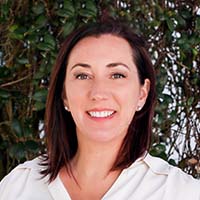 The industry event anyone in secured finance attends now celebrates its 77th year. SFNet is set to make the Arizona convention a memorable one. Click below to register.
The industry event anyone in secured finance attends now celebrates its 77th year. SFNet is set to make the Arizona convention a memorable one. Click below to register.

Angela Fiorentino
SVP, General Counsel , AmeriFactors Financial Group, LLC
Angela Fiorentino is helping pioneer the way in-house attorneys can be utilized as a significant asset to financial firms. Angela is senior vice president/general counsel for AmeriFactors. She began her career as a stockbroker and later was chief compliance officer at a broker dealer. While working in the financial industry, Angela graduated cum laude with her degree in accounting.
After graduating cum laude with her J.D. degree, Angela began working for a Miami-based law firm where she handled complex commercial litigation and creditors’ rights matters. She then joined a national law practice where she continued to handle complex commercial disputes and class action litigation. During her work as an attorney, she gained first-hand knowledge of the business and litigation risks financial firms face.
In 2017, Angela joined AmeriFactors. As general counsel, she handles all aspects of the company’s legal needs. She develops creative solutions to help clients obtain the funding they need. When necessary, she utilizes her litigation experience to develop and execute collection strategies aimed at recovering funds on behalf of the company and its clients. Angela’s work provides benefits not only to her company, but to her clients in minimizing risk and increasing revenue.
What advice would you offer to women just starting out in the industry?
Ask many questions of colleagues and supervisors. Everyone - from all walks of life – has precious knowledge and insight to offer based on their own career or personal life experience. Talk to people, listen, and have an open mind.
What do you know now that you wish you knew in the beginning of your career?
I wish I had internalized a strong belief in my abilities earlier. Objectively, someone looked at the available evidence and believed I was a good fit for the opportunity. And yet, I wasted a lot of time worrying about whether I deserved the opportunities that were provided to me and whether I could achieve what I perceived to be lofty standards. Sometimes, the simplest explanation is correct: If you work hard and achieve good results, people will take notice.
What role has mentoring played in your career?
Some of my best mentorships have been unofficial relationships. I enjoy learning from other people. If I happen to develop a good rapport with someone, learning valuable lessons and tips from them happens naturally. It can be helpful for organizations to establish formal mentoring plans, but it is just as important – and perhaps more effective - for executives and others in positions of power to take an interest in all employees.
What do you enjoy most about your role? Least?
I enjoy getting to work as a team with people from different departments because I enjoy hearing other people’s perspectives on a problem. When I worked for law firms, I only received the perspectives of other attorneys. I really like the diversity of ideas that comes with working as an attorney for a company. We achieve great results for our clients and the company when the legal and business units develop solutions together and that is personally gratifying for me.
How do you balance work/personal time?
I commit to one task at a time and go “all in” on that one task, whether it is enjoying a moment with my family or friends or solving a problem at work. I try to put everything else out of my mind until the task I am completing is finished. Extraneous thoughts and feelings hinder productivity and the ability to be present in the moment.
How can commercial finance organizations attract and retain more women?
Commercial finance organizations can encourage more inter-departmental and operational / executive-level socialization. Women value personal relationships and those relationships create loyalty to an organization. Women are also more likely to contribute thoughts, ideas and strategies in an environment where they feel supported and appreciated.
What do you think work will look like in the post-pandemic world?
I think it depends on the job. For example, my job sometimes involves collection efforts aimed at obtaining payment for our clients. Often those efforts require hearings and depositions in which the ability to observe body language and physically interact can be helpful. It is more economical for me to attend these activities remotely, but I’m not sure we receive the same value when the issues are more complex. So, while I think organizations can and should continue to hold some informal meetings remotely, once in-person meetings are safe, organizations should carefully consider the added value of face-to-face meetings in some circumstances, even though this “value” may be less quantifiable.
77th Annual Convention
 The industry event anyone in secured finance attends now celebrates its 77th year. SFNet is set to make the Arizona convention a memorable one. Click below to register.
The industry event anyone in secured finance attends now celebrates its 77th year. SFNet is set to make the Arizona convention a memorable one. Click below to register.
